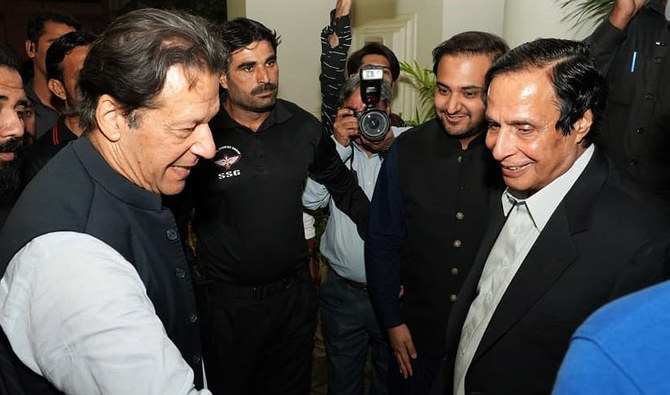KHAPLU: A Pakistani tourism company to which dozens of properties in the picturesque Gilgit-Baltistan region have been leased by the government recently, unleashing a wave of protests, said this week locals would not be left behind as it developed tourist areas and infrastructure.
Residents of Skardu Valley came out in protest earlier this week after 37 properties belonging to GB’s Forest and Communication and Works Departments were leased out to the Green Tourism Company, which has been widely described by demonstrators as being “army-backed.”
Gilgit-Baltistan, an impoverished, remote and rugged mountainous part of the larger Kashmir region also claimed by India, is governed as a separate administrative territory under Pakistan-governed Azad Kashmir. Home to some of the tallest mountains in the world, GB is a major tourist destination, with foreign and local tourism forming the backbone of its economy.
Strategically, GB is important as the only land-based link between Pakistan and its closest regional ally, China. The Pakistan army maintains a large security presence in the area, which borders Afghanistan and China and is the gateway of the $65 billion China-Pakistan Economic Corridor (CPEC) infrastructure plan. But the region has so far reaped few rewards.
Locals fought pro-India forces and opted to join Pakistan in 1948. But since then Gilgit-Baltistan has not been granted full inclusion by the Pakistani constitution over fears doing so would jeopardize Islamabad’s international stance that all of Kashmir is disputed territory. The region’s local assembly has few powers. Pakistan’s National Assembly and Senate have no representation from Gilgit-Baltistan, and the region receives only a fraction of the national budget.
“We are here to develop the tourism areas and infrastructure by engaging local communities,” Ghazanfar Khan, Green Tourism’s administration director, told Arab News, saying the company’s work in GB would create 300 direct and about 3,000 to 4,000 indirect job opportunities.
“The development of tourism infrastructure is a vital component of the thriving tourism industry. Uplifting accommodation options, improving transportation system, tourist facilities, information and communication technologies, sustainable infrastructure and community engagement are the top priorities of the company.”
Asked if Green Tourism was “army-backed,” Khan said it was government-owned and worked under the Special Investment Facilitation Council (SIFC), a civil-military hybrid body established last year to oversee foreign financing, but which is widely believed to be run directly by the army.
The SIFC has earmarked several economic sectors, including tourism, that are being prioritized for foreign investment.
“The main purpose of SIFC is to attract foreign investors to the country,” Khan said. “And you know, for foreign investors, whenever they go, they need security. That’s why the prime minister is the head of SIFC and the Pakistan army will provide them [SIFC projects] security.”
The military did not respond to requests for comment.
The company official said global marketing strategies would be used by the company to harness and promote GB’s vast tourism potential:
“All projects will adhere to environmental sustainability principles, ensuring that no trees are cut during development. Furthermore, local cuisines, artefacts and cultural heritage will be actively promoted to enrich the tourism experience and support local communities.”
However, the chairman of the Awami Action Committee that launched the protests this week described the tourist firm’s presence in GB as a “conspiracy” to occupy the area’s resources.
“They should be leased out to locals,” he said about the 37 properties leased to Green Tourism.
“Gilgit-Baltistan is a disputed region and without taking the public into confidence, there is no need to bring investors from outside,” Agha Ali Rizvi, a local elder and religious scholar, said. “All the lands allotted to the company are public property. Ignoring the public and signing a deal with [outside] investors is not a good omen.”
Rizvi said if the government wanted to promote the tourism industry, it should provide electricity, water, education and health facilities to the people of GB.
The region’s tourism minister Ghulam Muhammad said the administration had decided to lease out the properties to upgrade tourist destinations and attract more visitors, which would ultimately benefit locals.
“Government rest houses were built in GB when there was no concept of the private sector here,” he said.
“Now, you see, big hotels have come to the area. The government was facing huge losses and [these properties] were becoming a [financial] burden. So, to get benefit, we leased them out to the Green Tourism Company.”
















